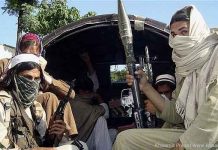New Delhi (NVI): The World Bank has approved USD 1 billion emergency funds for India to help it fight against the coronavirus contagion, which has claimed 56 lives and infected 2,301 people across the country.
The India COVID-19 Emergency Response and Health Systems Preparedness Project is being facilitated to help India prevent, detect, and respond to the COVID-19 pandemic and strengthen its public health preparedness.
This is the largest ever health sector support from the Bank to India.
This new support will cover all states and Union Territories across India and address the needs of infected people, at-risk populations, medical and emergency personnel and service providers, medical and testing facilities, and national and animal health agencies.
The project will immediately enable the central government to scale-up efforts to limit human-to-human transmission, including reducing local transmission of cases and containing the epidemic from progressing further.
In parallel, interventions to strengthen the health system will be rolled out to improve the country’s capacity to respond to the COVID-19 epidemic and be better prepared to respond to emerging disease outbreaks, including transmission between humans and animals.
Procurement of testing kits; setting up of new isolation wards — including turning hospital beds into intensive care unit beds; infection prevention and control; and purchase of Personal Protective Equipment (PPE), ventilators, and medicines, particularly in district hospitals and designated infectious disease hospitals will be scaled up under the project.
“The World Bank is working in close partnership with the Government of India to provide urgent and flexible support to the country as it fights the spread of COVID-19,” said Junaid Ahmad, World Bank Country Director for India. “This operation is expected to enhance surveillance capacities, strengthen diagnostic systems, and expand the capacity of laboratories. But, COVID-19 is not only a health challenge. It has deep social and economic implications. In parallel, we are working with equal urgency with Government on social protection programs and economic measures that protect the livelihoods of people.”
The project will also enhance the resilience of India’s health system to provide core public health prevention and patient care to better manage COVID-19 and future disease outbreaks.
It will help strengthen India’s Integrated Disease Surveillance Program, revamp infectious disease hospitals, district, civil, general and medical college hospitals, and build a network of high containment Biosafety Level 3 laboratories.
Today, about 75 per cent of new infectious diseases begin with human-to-animal contact, including HIV/AIDS, Ebola, and SARS. The project will develop capacity and systems to detect existing and emerging zoonoses, support biomedical research on COVID-19 by Indian institutions, and upgrade viral research and diagnostic laboratories for testing and research.
It will also help address potential significant negative externalities in the event of a widespread COVID-19 outbreak, including comprehensive health awareness and behavior change campaigns on hygiene practices, wearing masks, social distancing, and mental health and psychological services for vulnerable communities.
The project is financed from the International Bank for Reconstruction and Development (IBRD) in the amount of $1 billion, of which $350 million is provided through the World Bank Group’s COVID-19 Fast-Track Facility. It will be managed by the National Health Mission (NHM), the National Center for Disease Control (NCDC) and the Indian Council of Medical Research (ICMR) under the Ministry of Health and Family Welfare.








